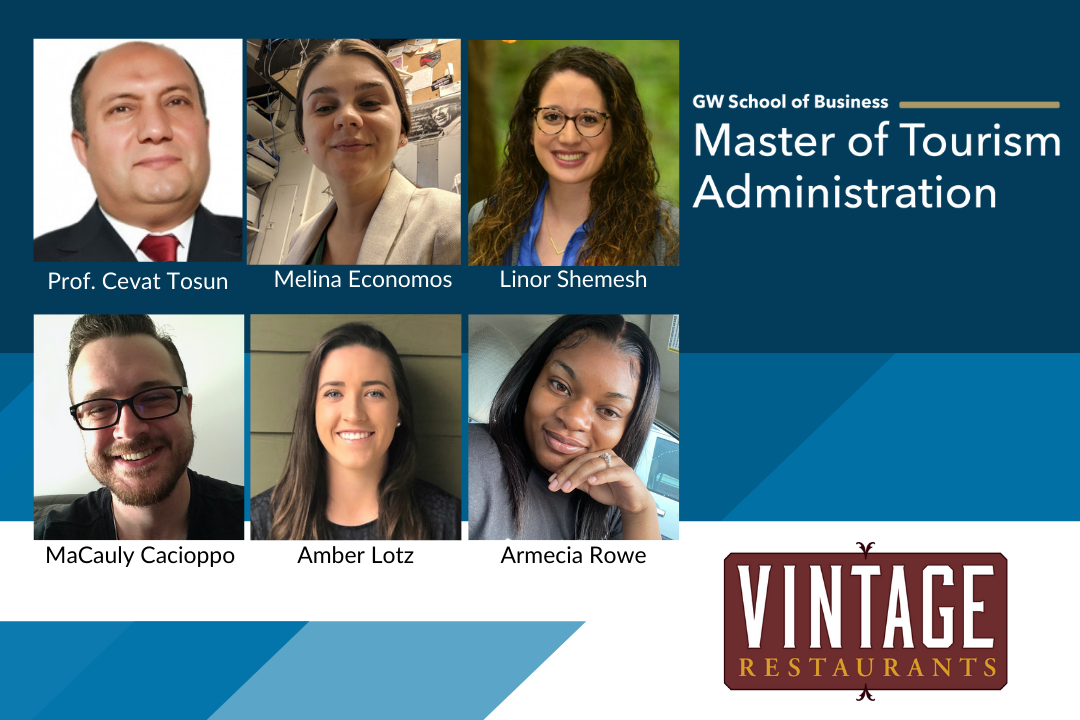Under the mentorship of Professor Cevat Tosun, Ph.D., Eisenhower Chair and Professor of Tourism Studies and Management and director of the Master of Tourism Administration (MTA) program, students in last spring’s TSTD 6270 Research Methods and Applications course undertook research on emotional labor and stress levels amidst the COVID-19 pandemic in the restaurant and service industry. The student team, comprised of MTA candidates MaCauly Cacioppo (‘22), Melina Economos (‘22), Amber Lotz (‘21), Armecia Rowe (‘21) and Linor Shemesh (‘23), focused their research on Northern Virginia-based Vintage Restaurant Group, which includes Bear Branch Tavern, Dogwood Tavern, Ragtime, Rhodeside Grill, and William Jeffrey’s Tavern.
For this timely project, students explored how emotional labor affects both front- and back-of-house staff across Vintage Restaurant Group’s five locations. Additional research explored whether or not emotional labor increased since the start of the pandemic, how employees and managers handle emotional labor, and how owners and managers can help reduce emotional labor.
With these questions guiding their analysis, the team conducted research prior to composing a survey for data collection. Front- and back-of-house staff that completed the survey were kept anonymous. Results gave insight into issues that have only become more apparent during the pandemic, including mental health, workload, burnout, feelings of safety, and work-life balance.
When reflecting on the impact of the experience, MTA Candidate Melina Economos (‘22) stated, “Having spent over 15 years of my career in restaurants, a consistent priority during my academic journey in the MTA program has been to conduct research that truly matters to workers on the frontlines of hospitality, especially during the COVID-19 pandemic. Our team worked with management to collect data to determine if emotional labor had increased during the pandemic. We also explored overall employee mental health. We thoroughly researched emotional labor as a construct while creating guidelines to mitigate employee stress through emotional intelligence training and support from management. It was heartwarming to see owners care so much about the wellbeing of their staff, as well as their drive to improve for the betterment of the whole team.”
In the food and restaurant industry, employee retention rates are notoriously low, and the issues analyzed in this project only contribute to the problem if they are not addressed properly. The student team’s findings help to broaden the scope of research and provide local businesses like Vintage Restaurant Group with the toolkit for better understanding the emotional labor and stress their employees face.


